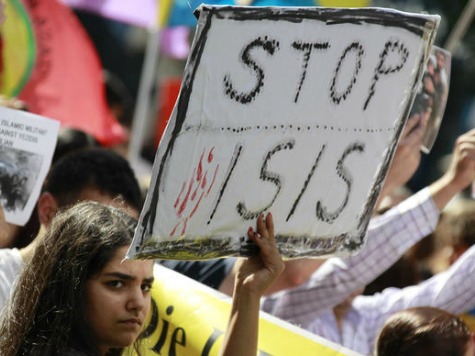A popular British historian, who has received death threats in the past, is again courting the displeasure of the Islamic community by suggesting the acceptance that parts of the Koran are “fictions” is the best way to slow the flood of radicalised youth going to Syria and Iraq to fight, and would allow the emergence of a new, peaceful Western Islam.
Award winning Tom Holland, who is best known for his accessible histories on the ancient world has in a short comment for faith think-tank Theos laid out his appraisal of the root causes behind radicalisation in Britain and suggested solutions to the problem.
In his article, Holland refutes the oft-repeated axiom that the Islamic State in Iraq and Syria, and terrorist attacks by Muslims across the Western world have “nothing to do with Islam”. He rejects this concept as a “reassuring assertion, and one that almost everyone, including the vast majority of Muslims, would desperately like to believe”, but states it is ultimately little more than “wishful thinking”. Holland cites the Koran and criticised Islam-ignorant Western leaders and scholars who are “obliged to pose as experts on Islam” and naively brand it the “religion of peace” without fully comprehending or understanding it.
Despite ISIS using the “most brutal” reading of the Koran imaginable, that doesn’t invalidate it, or make them un-Islamic, he says. Indeed, he says ISIS are doing Islam ‘by the book’: “The grim truth is that sanctions can be found in the Qur’an, in the biographies of Muhammad and in the histories of early Islam for much that strikes the outside world as most horrific about the Islamic state”.
This is not the first time Holland has generated controversy around his work. His 2012 book In the Shadow of the Sword: The Battle for Global Empire and the End of the Ancient World and associated television programme Islam: The Untold Story both questioned the fundamental assumptions around the basis for the Koran and Islamic faith, and led to him receiving death threats. The television documentary garnered over 1,200 complaints.
The Times newspaper quotes Shenaz Bunglawala of the Muslim Engagement and Development group, who also objects to insisting that one group of Muslims follow true Islam, while another doesn’t. Speaking to the paper, she said that trying to Anglicise British Muslims by encouraging a less violent form of Islam used “jingoistic, totemic language and behaviour norms that are imperiously talked about, like ‘British values’, [which] only reinforce a sense of separatism by insisting on treating British Muslims as a perfidious minority”. Bunglawala said delineating between “secular British Islam” and the Islamic faith pursued more literally by ISIS is “patronising”.
Holland believes that if British and European Muslims can confront the historic uncertainties about the early days of Islam, and accept that the “stories told about Muhammad are fictions bred of a particular context and period”, a “clearly Western form of Islam” will over the next century break away and establish itself. With that, he hopes Europe will “no longer be a place for ritual beheading”.

COMMENTS
Please let us know if you're having issues with commenting.